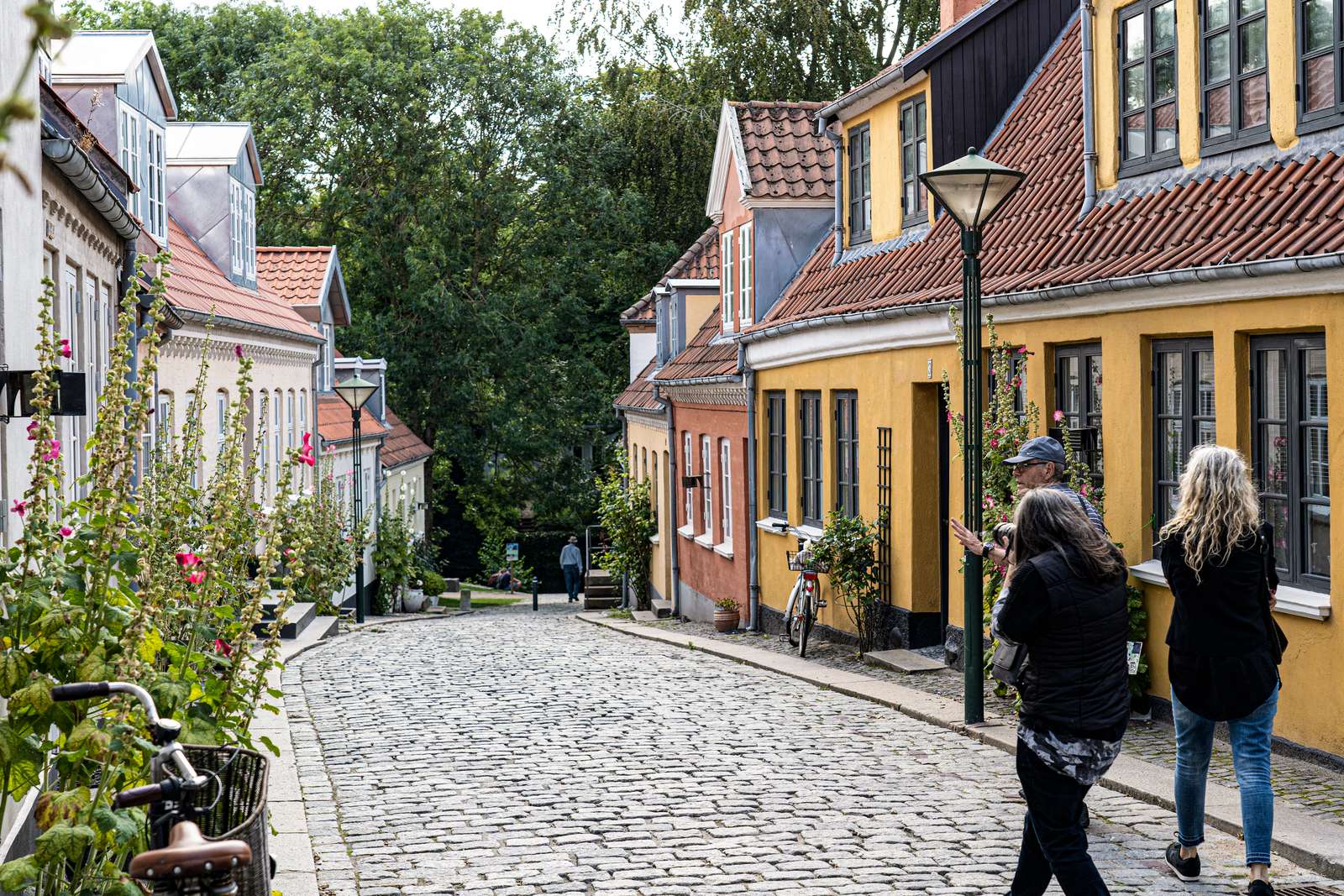 Kindness and politeness is the new ‘cool’ in Denmark.
Kindness and politeness is the new ‘cool’ in Denmark.
Those who have battled their way onto a bus in Copenhagen or jostled for their position in a supermarket queue might find this hard to believe. But the American-born Danish author, consultant and kindness warrior Lars AP (the AP is short for Andreas Pedersen) is determined that his countrymen and women should embrace this statement and make it prevail, and he has plenty of people onboard to support him.
In 2010, Pedersen published his book ‘Fucking Flink’ (‘Fucking Friendly’) as a key to unlocking one of the biggest paradoxes he saw in society: Denmark consistently ranks at the top of global happiness indexes, but the surplus of happiness that should accompany this status isn’t all that noticeable in its people’s daily interaction.
To native English speakers the title might sound like an aggressive way to raise the subject – how can using the F-word encourage Danes to be friendlier towards each other?
“In Denmark it’s an okay way to do it,” Pedersen said, pointing out that the F-word is less offensive in Danish.
“The idea was to serve up a theme that has become unsexy and lacks coolness. It’s actually not my own idea; it was a colleague who suggested that I give it more ‘oomph’ and I’m so glad she did.”
Pedersen’s active promotion of friendly behaviour and research into Danish politeness culture has turned his book into a movement. His Facebook page is one of the fastest growing pages in Denmark with almost 162,000 followers, and he most recently featured as a mentor for Thomas Skov Gaardsvig in DR2’s series ‘Høflighed på 100 dage’ (Politeness in 100 days).
Since starting the initiative, Pedersen has also been in increasing demand as a conference presenter and ideas consultant for Danish businesses.
“It started out as a very personal project, and to be able to make it more or less a full-time occupation is like a dream come true,” he said. “It’s one of those projects which you feel that you’re doing something for the greater good, and therefore it feels worthwhile on a larger scale.”
Unlocking the paradox
It shouldn’t be an uphill battle to turn the world’s happiest people into the friendliest. But sometimes reality defies the equation. First of all, is it really true that Danes are happy?
“Danes, and Scandinavians in general, are heavy users of Prozac and we are very high on the suicide ratings. Does that go hand-in-hand with a high level of happiness? I don’t think so,” Pedersen noted.
Politeness is also difficult to express in a language that does not have a word for ‘please’ and has fewer markers of etiquette than other languages and those that have are more subtle. On a personal level, Pedersen observed that he even expressed himself in a friendlier and more open way when he spoke English rather than Danish.
But despite the grim statistics and linguistic limitations, Pedersen still believes Danes are happy – or if not truly happy in an outward sense, then at least content.
“I think there’s a correlation between how much we actually expect from life, which is perhaps not very much, and what we get out of it. The positive gap that we end up with between those two is what makes us content or happy on the happiness index,” he explained.
By bouncing his ideas and experiences off linguists, psychologists and academics specialising in politeness theory, Pedersen has discovered that friendliness is not just embedded in the pleasantries used in different languages but in the culture behind those languages, and that Danes have evolved with a collective “defensive pessimism” and “negative politeness culture” in their approach to everyday life.
“Our negative politeness stems from our rural politeness culture. What characterises ‘negative politeness’ is that you acknowledge that someone has things to do, so you leave them alone and you get on with whatever it is you’re working on. When you think about it, that’s actually quite polite; there’s nothing wrong with that.”
Pedersen recognised it was the Danes’ negative politeness that created an impression of hostility, especially among newcomers trying to settle in.
“When a foreigner is standing on the street with a map in need of help, that’s a sign for Danes to act differently, and I actually think that Danes are relatively helpful in this sense. However, when you’re walking around the streets of Denmark and you look like a local, that’s when you really experience the lack of openness and the lack of helpfulness.”
Embracing a friendlier outlook
When Pedersen started his initiative, he took to the streets of Copenhagen to experiment with Danes’ reactions to random acts of kindness, such as issuing rewards for good parking as a bogus parking inspector, helping people carry their bicycles and prams up the stairs at Nørreport Station and giving sweets to bus drivers.
To him, the results were encouraging.
“I have not yet experienced a single one of these actions go badly – when people didn’t respond positively. People really do want to be playful in the way we interact. They just need the excuse.”
As his work has expanded and drawn more attention from international audiences, it could now be said that the challenge ahead is not only to give Danes the excuse to carry out more kind gestures among each other, but to extend that friendliness even further.
“You can’t really employ a negative politeness culture when people aren’t necessarily doing their own thing, but are perhaps newcomers to the country and need help. They basically need you to give them a helping hand and show them how things work and include them in whatever you might be doing. So a more inclusive politeness culture is needed,” he said.
But foreigners and locals alike can take heart from the large number of Danes who have already thrown their support behind what started out as a one-man movement. Pedersen has even heard of people competing to ‘out-flink’ each other.
“It’s just wonderful to see how it has more or less become a term for doing something unexpectedly nice towards other people and, in a sense, become a badge that you’re willing to put on, because it’s cool to be ‘Fucking Flink’. I wouldn’t say that my mission is accomplished, but we’re definitely on the way and that makes me really happy.”













